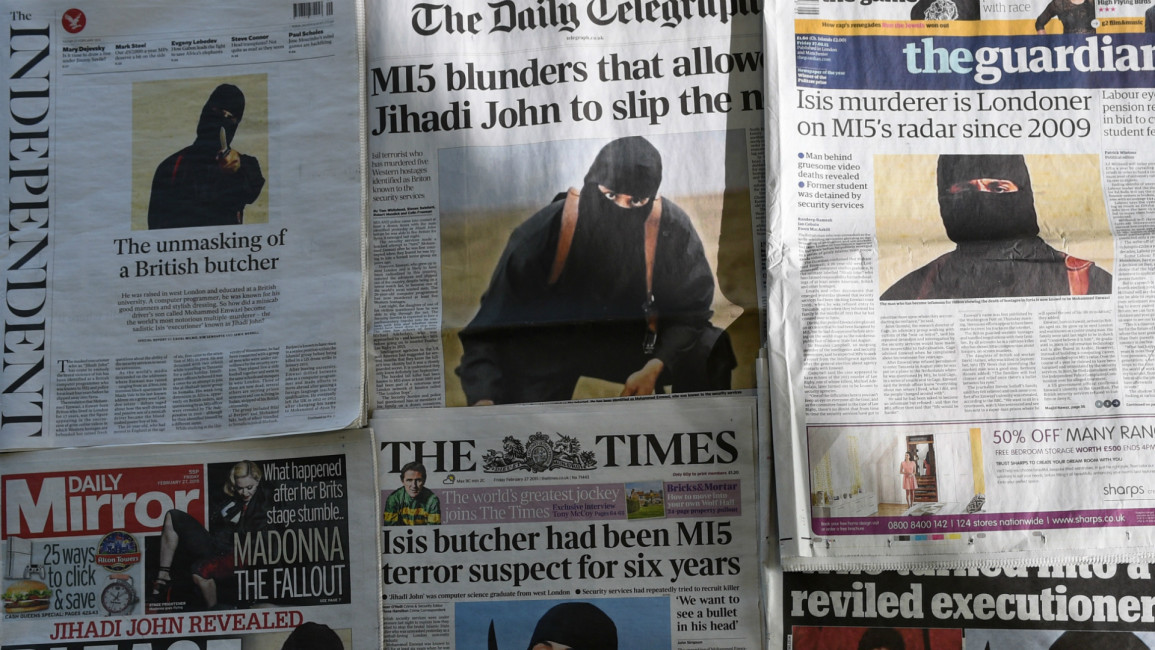
Misunderstanding ISIS: Britain's enemy within?
Britain’s current IS strategy is in flux both domestically and internationally. In a wide-ranging speech last Monday, British Prime Minister David Cameron set out an ambitious programme to tackle the domestic component combatting IS.
The Prime Minister described the rise of religious extremism as the "challenge of a generation" and previewed new legislation on curbing "home-grown extremism" and improving cohesion.
A few days earlier, news of British involvement in air strikes in Syria drew widespread condemnation as it seemed that the UK Parliament’s decision not to attack the country was being ignored.
Julian Lewis MP, the Chair of the Defence Select Committee, led the charge saying that he'd "think how my vote [on whether the UK should join US-led air strikes over Syria] will depend on whether the Prime Minister, instead of making this up on the hoof as has been the case I’m afraid up till now, presents parliament with an integrated strategy, approved jointly by the heads of the Armed Forces, as something that could produce a decisive result".
An integrated strategy in the making?
Speaking to the US television network NBC, the Prime Minister said he would "have to take my parliament with me" but that he wanted to "destroy this caliphate, whether it is in Iraq or in Syria".
In that context, Defence Secretary Michael Fallon MP explained Monday in Westminster that "tackling ISIL only in Iraq is illogical when ISIL itself does not respect international borders".
| British Prime Minister David Cameron set out an ambitious programme to tackle the domestic component combatting IS. |
The Scottish National Party’s (SNP) Foreign Affairs Spokesman, Alex Salmond MP, slammed the apparent mission creep in the UK’s IS operations saying that "David Cameron shows breathtaking arrogance on this issue.
Just two days after revelations that UK military personnel have been involved in air strikes in Syria without the approval of the parliament, he is determined to push for further action without first providing answers to serious questions that must be addressed".
Meanwhile, Labour’s Graham Allen MP warned that the government is preparing for "another catastrophic incursion into the Middle East following on from the military disasters in Iraq, Afghanistan and Libya".
Allen added that "even a small intervention will act as a further recruiting sergeant for the orphan, the gullible, the ignorant and the fundamentalist in the region and in our own schoolyards".
There is clearly both confusion and political battle lines being drawn in the UK on how the government has handled the war on IS so far and how it should handle it in the future.
However, I would argue that the challenge is not simply IS itself – its numbers, tactics, areas of operation, or violent and non-violent expansion, but rather the nature of the threat from loosely-networked grassroots franchises that use religion and the "Other" sentiments as legitimacy grounds for espousing global violence.
A symptom of globalisation
There is an apparent mismatch between a problem stemming from globalisation (i.e individuals from UK travelling to fight in distant conflicts) and a traditional nation-state response that Cameron is after: protecting borders, improving regulatory services and promoting "our values".
Essentially, we need to flip the government's argument that "people are failing to integrate into Britain" into "Britain is failing to integrate into the challenge of globalised violence".
The Prime Minister is playing with fire with a policy that is more likely to demonise British Muslims than empower them. Cameron stated that "we must be clear. The root cause of the threat we face is the extremist ideology itself".
Yet, focusing on the message at the expense of the medium could easily alienate Muslims. This counter-productive tactic allows extremists to legitimise the "war against Islam" narrative.
In his latest speech, Cameron outlined that "together we defeat extremism and at the same time build a stronger, more cohesive society". Yet the new legislation will walk a tightrope of trying to "defeat extremism" whilst not being seen to be zealously targeting British Muslims.
| There is an apparent mismatch between a problem stemming from globalisation and a traditional nation-state response that Cameron is after. |
Arun Kundnani, Professor of Media, Culture, and Communication at New York University, wrote about how, according to one estimate, 100,000 Arabs & Muslims living in the US have personally experienced one of the various post-9/11 security measures including arbitrary arrest, indefinite detention and wire-tapping.
In the UK, the Prime Minister, probably unknowingly, has reopened the thorny debate on multiculturalism and integration through his framing of Islamic extremism.
With a green light seemingly in the pipeline to expand bombing campaign of against IS to Syria, we are now faced with the daunting prospect of a battle for hearts and minds at home and abroad simultaneously.
James Denselow is a writer on Middle East politics and security issues. He is a contributing author to An Iraq of Its Regions: Cornerstones of a Federal Democracy? and America and Iraq: Policy-making, Intervention and Regional Politics Since 1958. He is a former board member of the Council for Arab-British Understanding (CAABU) and a Director of the 'New Diplomacy Platform'. Twitter handle: @jamesdenselow
Opinions expressed in this article remain those of the author and do not necessarily represent those of al-Araby al-Jadeed, its editorial board or staff.



